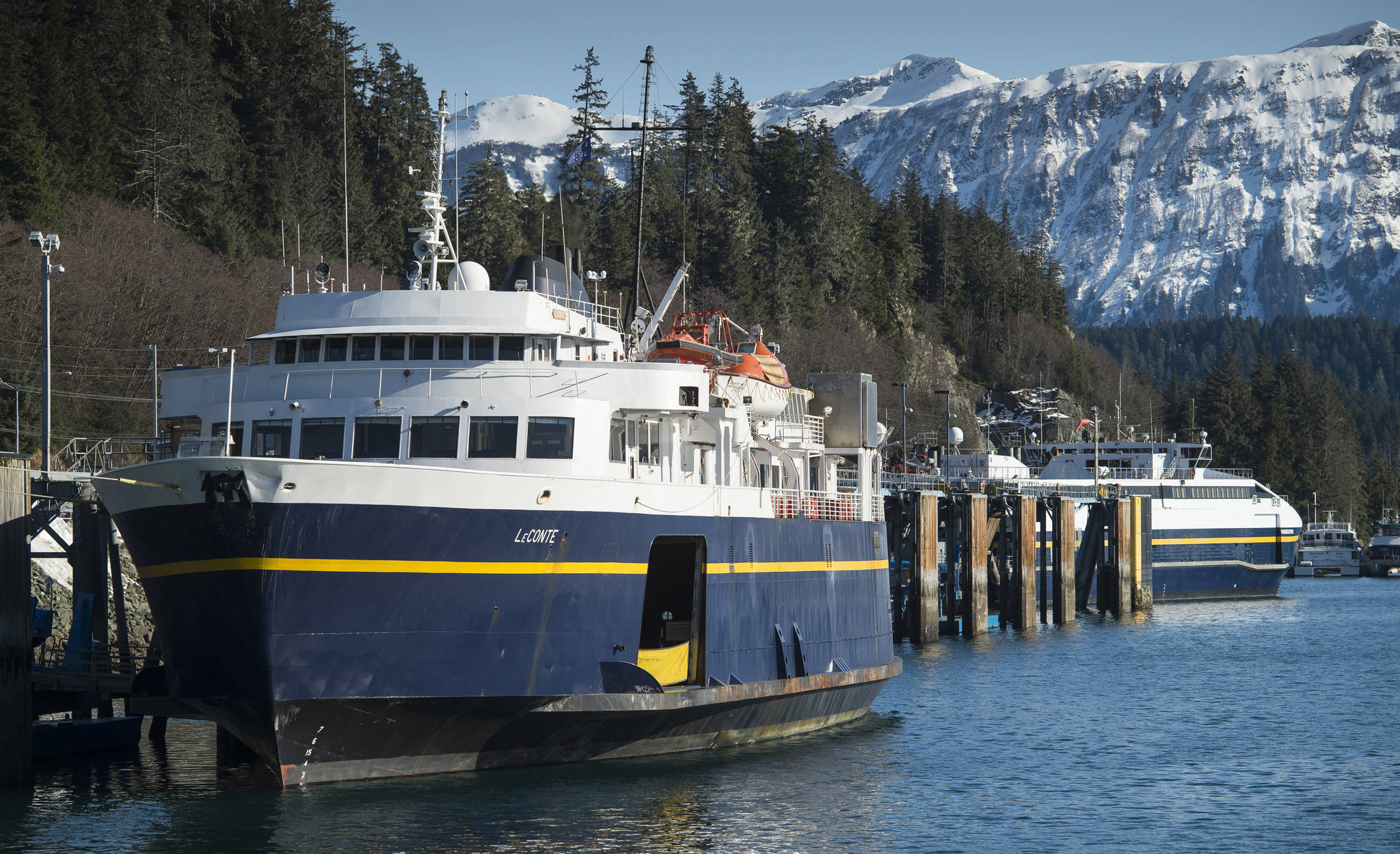Recent news articles and opinion pieces suggest the new Alaska-class ferries (ACFs) are useless unless $30 million more is spent adding crew quarters — a modification that could have been made during construction.
Even a cursory review of the Alaska Department of Transportation Project Design Concept Report would tell you this isn’t true.
In fact, there’s no legitimate reason the vessels cannot be used as intended — as day boats without crew quarters.
[Opinion: Why the Alaska-class ferries aren’t ready]
Contrary to media reports, ACFs were designed to be used as day boats whether the Juneau Access Project was built or not. Planners were required to justify the use of ACFs under a variety of alternative scenarios in Lynn Canal and Prince William Sound that are not much different than we face today.
The Alaska Marine Highway System (AMHS) commissioned several studies in 2013 re-validating the day boat design concept. As documented in DOT’s Design Concept Report, ACFs allow more efficient operation using 12-hour day boats on shorter routes between coastal communities.
As a result, former Alaska Gov. Sean Parnell directed AMHS to build two ACF vessels — constructed in the Ketchikan shipyard at a cost of under $60 million each. This cost was dramatically lower than the $160 million cost of one larger ship with crew quarters considered previously.
Change is always difficult and forces resistant to change within our ferry system are deeply embedded in state government, as well as with union leaders and rank-and-file employees.
But AMHS has finally reached a tipping point. After decades of ignoring common-sense transportation planning, Alaskans are saddled with a system rife with inefficiency, runaway operating costs, maintenance issues with aging vessels and state subsidies that are unsustainable.
AMHS’s annual general fund subsidy has grown from $50 million in 1990 to almost $90 million in Fiscal Year 2017. Even this number is misleading since regular annual overhaul costs are not included. In 2017, overhaul costs of $12.5 million bring the AMHS annual operating subsidy to more than $100 million.
Despite fare increases, AMHS revenues barely cover 30 percent of system operating costs. Budgetary pressures have led to vessel layups, increasingly unaffordable vehicle fares and service cutbacks.
Accordingly, AMHS has planned to retire several vessels including the “fast ferry” Fairweather. Existing conventional vessels can require two crews of up to 44 crewmembers to operate them (half resting in crew quarters with the other half on duty). This allows the vessel to extend its operating day beyond the 12-hour limitation mandated when only one crew is aboard.
While this allows more flexibility in ferry scheduling — especially on round-trips exceeding 12 hours, the costs associated with operating vessels with extra crews and rest quarters are astronomical.
Crew quarters trigger additional requirements like galleys, shower and laundry facilities, and the list goes on — exponentially increasing the size of the crew and required support services. And these costs will never go away. Instead, they will just perpetuate AMHS’s spiraling financial burden.
Contrast that situation with the new ACFs (two vessels for one-third the total cost to build one Columbia-style mainliner). Crew requirements are reduced to 14 on each vessel — dramatically increasing efficiency and lowering operating costs. Adding crew quarters would negate most of these advantages.
What proponents of adding crew quarters won’t recognize is while some service frequency may necessarily be reduced, the ACFs can be used on longer runs per DOT’s published Concept Report by overnighting the vessel in a destination port similar to airline operations today.
Indeed, the long-term solution is to build more ACFs — not make existing ones more inefficient and unaffordable. Why spend $30 million adding crew quarters when for less money, we could build a ferry terminal at Cascade Point — cutting round-trip sailing times in Lynn Canal by half.
Some minor vessel modifications, such as adding a forward starboard loading door, would allow wider use of current ferry docks and mitigates the need to make major changes to existing ferry terminals.
With lower oil prices and reduced state revenues, AMHS cannot afford to ignore the significant cost savings realized in building and operating more efficient vessels.
The consternation we see from the “don’t want to change” advocates isn’t because of a “wrong decision” — it’s because Parnell made the right decision.
• Win Gruening retired as the senior vice president in charge of business banking for Key Bank in 2012. He was born and raised in Juneau and graduated from the U.S. Air Force Academy in 1970. He is active in community affairs as a 30-plus year member of Juneau Downtown Rotary Club and has been involved in various local and statewide organizations. He contributes a regular column to the Juneau Empire. My Turns and Letters to the Editor represent the view of the author, not the view of the Juneau Empire.

